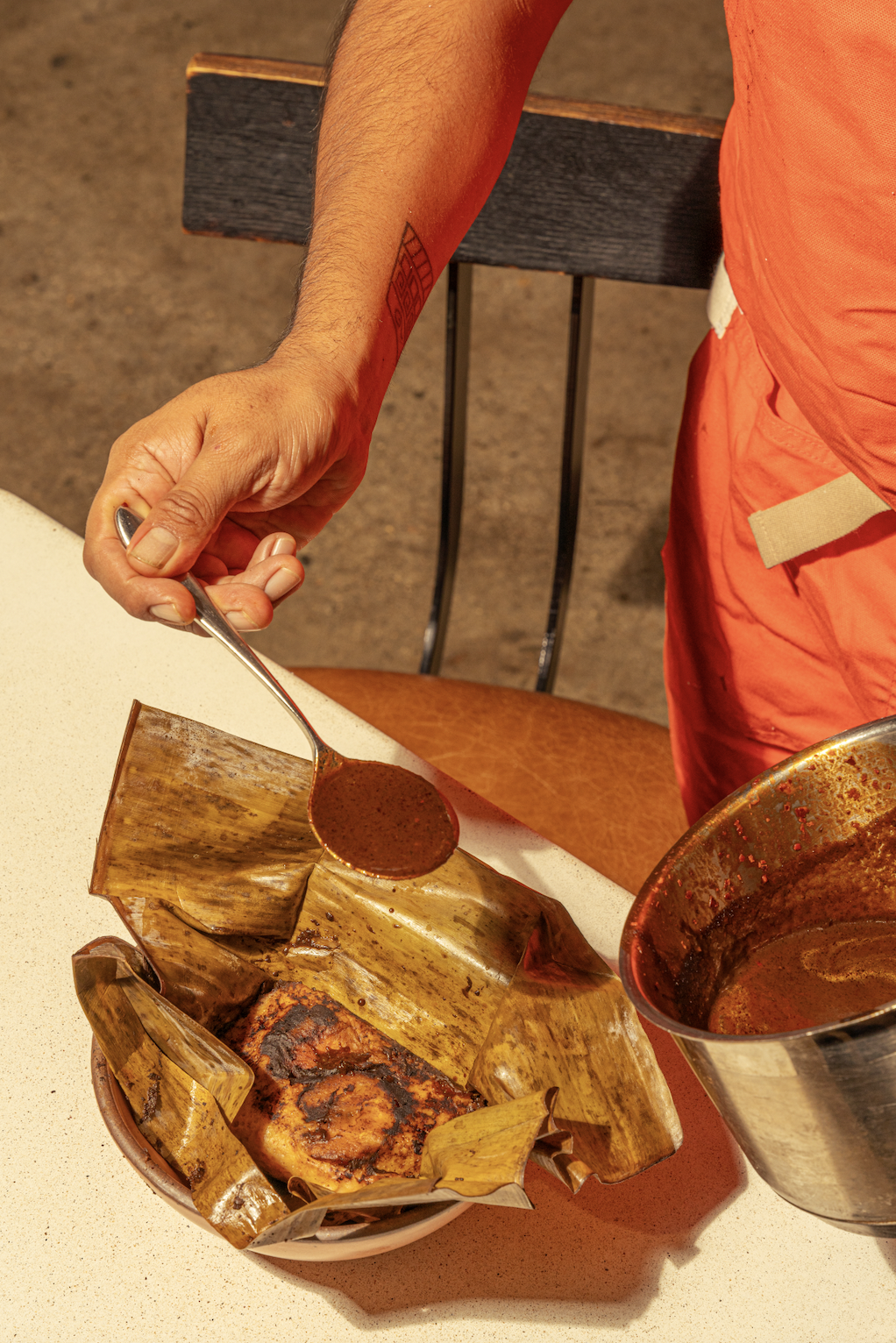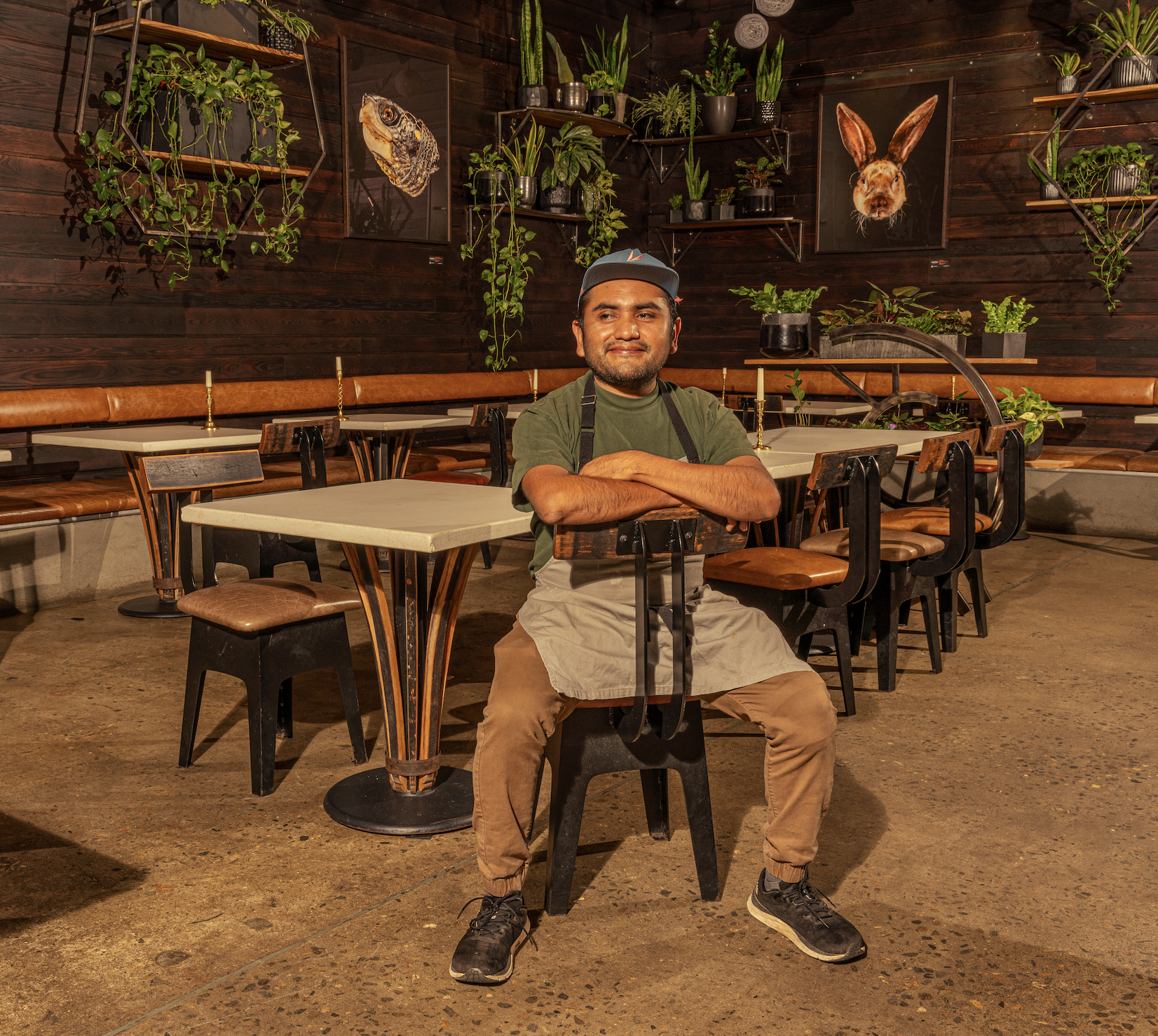Mission Mexico
Asheville-based chef Luis Martinez preserves his Oaxacan culinary roots through Tequio Foods
By Ariel Blanchard
Chef Luis Martinez calls himself privileged. It’s not a term often used by people who’ve suffered intense discrimination. Based in Asheville, North Carolina, for the last decade, Martinez is an indigenous Oaxacan, a political refugee and immigrant, and a United States citizen. He’s also fluent in his native Zapotec language, Spanish, and English. “I’m very unique,” he says. “I have that privilege. I need to use it.”
His particular blend of cultural experiences and hardships has shaped an equally unique relationship to food, compelling him to action, education, and preservation. Martinez landed years ago on a seemingly narrow area of focus—maíz, or corn traditionally grown and revered by his people in Oaxaca. In reality, maíz is prismatic, a singular topic that, when brought to light, reveals a spectrum of hues, uses, and significance. When the idea first sprouted for Tequio Foods, Martinez’s company dedicated to supporting indigenous maíz farmers and showcasing the crop’s time-honored culinary uses, the environment wasn’t kind. “People made jokes and didn’t take me seriously,” Martinez says. He turned that into motivation. “That was, like, the gas for the whole thing,” he says. “It’s not possible? Watch me.”
Born in Santa Catarina Loxicha, Oaxaca, Mexico, Martinez’s sense of social justice came naturally. “All the community work I do now started when I was 13 years old,” he says. Martinez ultimately sought and received political asylum in the United States in 2005. Upon arriving in Indio, California, he experienced culture shock and the unjust reality of migrant work as a farmworker. Moving to Los Angeles and eventually Seattle, Washington, allowed him to return to the restaurant industry, but not without encountering resistance, despite his experience. “I was expecting to have more support for minorities,” he says. “And most Latinos were dishwashers.”
Martinez was undeterred. He worked his way up in every kitchen, his fellow chefs teaching him how to infuse Oaxacan culture and cuisine into his cooking. He brought those skills to Asheville in 2012. Founding Tequio Foods was the convergence of his passions. Even his fine art background is recognizable in each product design and logo. After many years working to pay indigenous farmers fairly and import their corn, Martinez began partnering with seed historians on the East Coast, like the Utopian Seed Project and others, who are preserving and reviving indigenous corn here.
“People made jokes and didn’t take me seriously,” Martinez says. “That was, like, the gas for the whole thing. It’s not possible? Watch me.”
At a collaboration dinner earlier this year with James Beard nominated chef Dayna Lee-Márquez of Comal 864 in Greenville, South Carolina, Martinez showcased corn’s versatility. For him, sharing his ancestral food culture is a way to break down negative stereotypes. “It’s a way to say ‘welcome to my culture,’” he says.
And it wouldn’t have been a true representation of that culture without a mole, which he introduced with a surprising note: this particular version called chichilo didn’t contain cacao, despite the earthy brown color and even the taste, which, he revealed, came from burnt chiles. “When you eat [mole], it’s going to be something very important in your life,” he says. “It’s not something you’re going to eat all the time.”
Through importing indigenous farmers’ crops, hosting culinary pop-ups, developing retail food products, and in 2024 leading tours to Oaxaca that will benefit only indigenous travel partners and members of his community, Martinez is achieving his dream of creating a local economy for his region. “I want to teach my own people. I want to tell people, if you work hard, it is possible. Sometimes you will like to quit. That’s what it’s like trying to build a dream.”
Photography by Andrew Huang
Follow Chef Luis Martinez on Instagram at @luismartinezcreative and tequiofoods.com.




